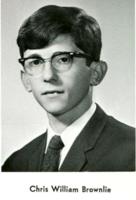AIDS treatment goes global: the primary focus has shifted "from end-of-life hospice care to outpatient clinical care, as HIV-positive patients on new drug regimes [sustain] longer, healthier lives."
from a published article:
USA Today (Society for the Advancement of
Education),
March
2006 by
Ged Kenslea, Lori
Yeghiayan
 ALMOST 20 YEARS AGO, a small group
of friends, outraged over seeing peers with AIDS
dying in the streets of Los Angeles, banded together
to "fight for the living and care for the dying."
With a coffee can and a clipboard, this group, led
by New York native Michael Weinstein, raised
awareness and funds door to door to press for
legislation that ultimately allowed them to open the
first licensed AIDS hospice in California. Since
that time, the fledgling group has grown to become
AIDS Healthcare Foundation (AHF), the largest ADS
organization in the U.S., operating free treatment
clinics in this country as well as Africa, Central
America, and Asia, serving close to 30,000 patients
worldwide. The group also has continued--and
expanded--its tradition of outspoken advocacy
through protests, patient marches, lawsuits, and
lobbying for legislation, all on behalf of those who
are living with HIV/AIDS.
ALMOST 20 YEARS AGO, a small group
of friends, outraged over seeing peers with AIDS
dying in the streets of Los Angeles, banded together
to "fight for the living and care for the dying."
With a coffee can and a clipboard, this group, led
by New York native Michael Weinstein, raised
awareness and funds door to door to press for
legislation that ultimately allowed them to open the
first licensed AIDS hospice in California. Since
that time, the fledgling group has grown to become
AIDS Healthcare Foundation (AHF), the largest ADS
organization in the U.S., operating free treatment
clinics in this country as well as Africa, Central
America, and Asia, serving close to 30,000 patients
worldwide. The group also has continued--and
expanded--its tradition of outspoken advocacy
through protests, patient marches, lawsuits, and
lobbying for legislation, all on behalf of those who
are living with HIV/AIDS.
As the Foundation grew and evolved in response to the exploding epidemic, Weinstein never lost sight of the co-founders' original pledge. As president, he oversaw that historic opening of the Chris Brownlie Hospice, named in honor of co-founder and close friend, Chris Brownlie, a Los Angeles writer. Brownlie, who was living with--and dying from--AIDS, first inspired Weinstein and friends to act after he spent days on a stretcher in the halls of a Los Angeles hospital awaiting admission. At the time (1988), in addition to widespread misunderstanding and fear of the disease, few hospitals were equipped to care for AIDS patients, and no effective medical treatment was available.
"We provided compassionate end-of-life care to nearly 2,000 patients at this first hospice," recalls Weinstein. "Chris himself lived his last days here. We, his friends, find comfort in the care we provided to so many in the facility that bore his name."
Brownlie often wrote of his straggles with AIDS, chronicling the physical and emotional toll of the disease that ultimately claimed his life in November 1989. In his poem, "AIDS," he captured a sentiment that still resonates today, " ... It is surviving and believing in the future."
"All of us at AHF continue to honor Chris" memory and his belief in the future in the work that we do every day bringing life-saving treatment to people living with HIV/AIDS worldwide," concurs Weinstein.
Today, AHF is a 24/7 operation, offering HIV prevention and testing services, as well as medical care and life-saving drug treatments in more than 30 clinics on four continents. With the arrival of effective treatment in the form of anti-retroviral therapy--the so-called AIDS drug cocktails in 1996--HIV/AIDS, at least in the developed world, has become a chronic, manageable disease. In response, Weinstein and AHF shifted the primary locus of the organization from end-of-life hospice care to outpatient clinical care, as HIV-positive individuals on the new drug regimens began leading longer, healthier lives.

